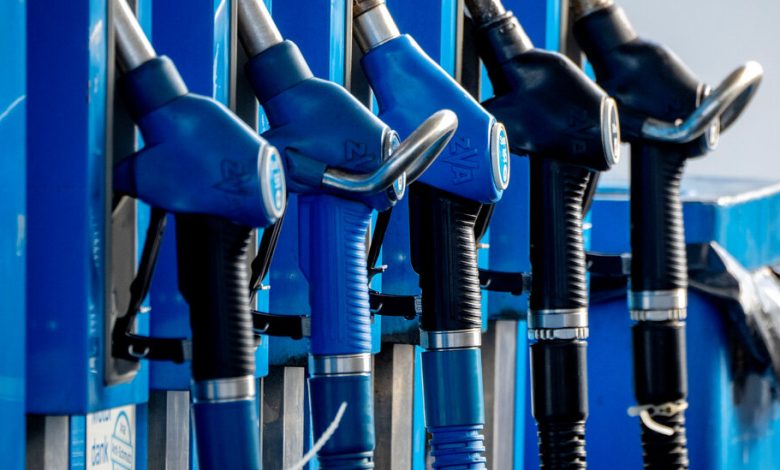Amid Churning Oil Market, OPEC and Russia Leave Production Unchanged

OPEC and its allies, including Russia, said on Sunday that they would leave their quotas for oil production unchanged. The group, known as OPEC Plus, appears to have decided during a teleconference that there was no reason to alter policy amid the many uncertainties in the oil market.
On Monday, the European Union will begin an embargo on Russian oil, while the Group of 7 industrialized nations and their allies are imposing a price cap of $60 a barrel on Russian crude.
The looming embargo and the price cap were the chief reasons for the producers’ group to hold its fire. What the outcome of these initiatives will be for oil markets is still to be determined, but they could affect millions of barrels a day of Russian oil. OPEC may have decided that it was better off keeping its collective head down rather than risk being blamed if, for instance, prices jump in the coming days.
The Biden administration had criticized the Saudis, the de facto leaders of OPEC Plus, for orchestrating a production cut of two million barrels a day, or about 2 percent of global oil production, at the group’s last meeting in October. That announcement, the first large production cut in two years, was seen as a bid to bolster oil prices.
In a news release after its meeting on Sunday, OPEC Plus defended the October production cut, saying it was now recognized by market participants to have been “necessary and the right course of action.”
Because oil is ordered several weeks in advance, the production trims announced in October only began working through the market in the last few weeks. In addition, releases from the strategic stockpile of the United States are winding down.
The Saudis, who are absorbing the largest of the production cuts, probably want to wait and see whether the output cuts and the end of the reserve releases offset weakening demand, especially in China, the world’s largest oil importer, where Covid lockdowns are hampering industrial production and overall economic activity.
While the full group is not scheduled to meet again until June 2023, the news release said that they were ready “to meet at any time and take immediate additional measures to address market developments.”
Brent crude, the international benchmark, was $85.57 a barrel on Friday, down from more than $110 in June, while West Texas Intermediate crude was about $80 a barrel. Many analysts say that the Saudis are determined to seek a price of around $90 a barrel for Brent, and that they will cut production, regardless of protests from the West, if prices fall significantly from that level.
Analysts say that the outlook for the oil market in the coming weeks is uncertain. On Monday an embargo on tanker shipments of Russian crude to ports in the European Union will begin, to be followed by a ban on Russian refined products, like diesel, on Feb. 5.
Monday’s embargo will be coupled with a prohibition on shipping and insurance companies, mostly based in Europe, from handling Russian crude priced above $60 a barrel.
The price cap initiative, which has been led by the United States and endorsed by the Group of 7 countries, Australia, and the European Union, aims to reduce the revenues Moscow has to finance its war in Ukraine, while still encouraging the Kremlin to sell oil to key customers outside the European Union to avoid a global oil shock.
Analysts and traders are skeptical about how well the price cap will work because it may be difficult to administer and will mainly hit large customers for Russian oil like India and China, which have not sided with the West in the war with Ukraine. American officials have argued that they are trying to avoid a sudden contraction of supply, and the resulting spike in gasoline and heating oil prices, as the E.U. embargo takes hold.
Russia has said it will not accept a price cap and has threatened to cut off supplies from countries that comply. Analysts say that Russia has been building a so-called “shadow fleet” of old tankers to handle its oil and avoid the sanctions, but they are skeptical that it can assemble a large enough flotilla. If it can’t, Russia may need to begin closing down wells. But Moscow has managed to keep production much higher than many analysts anticipated in the early days of the war in Ukraine.
The coming weeks may see an interplay between the growing difficulties that Russia is likely to have in selling its oil and the effects of a slowing global economy. China will be a key factor. Lockdowns there are reducing demand for imports. But widespread protests against those restrictions have been followed by some easing of the “zero Covid” rules, offering some hope of a gradual easing and a bounce back in consumption of fuel.
At the moment the oil markets are betting that these momentous shifts can be handled smoothly. But they may be wrong.